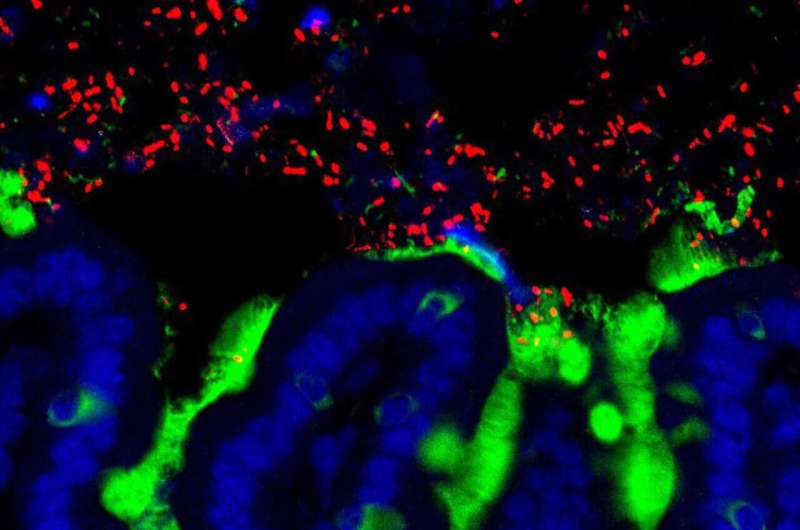Composition of gut microbiota could influence decision-making
Originally published by Marie Simon, Paris Brain Institute, on May 18, 2024
Commensal bacteria (red) among the mucus (green) and epithelial cells (blue) in a mouse small intestine. Credit: University of Chicago.
The way we make decisions in a social context can be explained by psychological, social, and political factors. But what if other forces were at work? Hilke Plassmann and her colleagues from the Paris Brain Institute and the University of Bonn show that changes in gut microbiota can influence our sensitivity to fairness and how we treat others. Their findings are published in the journal PNAS Nexus.
The intestinal microbiota—i.e., all the bacteria, viruses and fungi that inhabit our digestive tract—plays a pivotal role in our bodies, well beyond digestive function. Recent research underscores its impact on cognition, stress, anxiety, depressive symptoms, and behavior; mice raised in a sterile environment, for example, have difficulty interacting with other individuals.
While these findings are promising, most of this research is carried out on animals and cannot be extrapolated to humans. Nor does it allow us to understand what neuronal, immune, or hormonal mechanisms are at work in this fascinating dialogue between brain and intestine: researchers observe a link between the composition of the microbiota and social skills but do not know precisely how one controls the other.
"The available data suggests that the intestinal ecosystem communicates with the central nervous system via various pathways, including the vagus nerve," explains Plassmann (Sorbonne University), head of the Control-Interoception-Attention Team at the Paris Brain Institute, and professor at Insead. "It might also use biochemical signals that trigger the release of neurotransmitters, such as dopamine and serotonin, which are essential for proper brain function."



Comments
Post a Comment